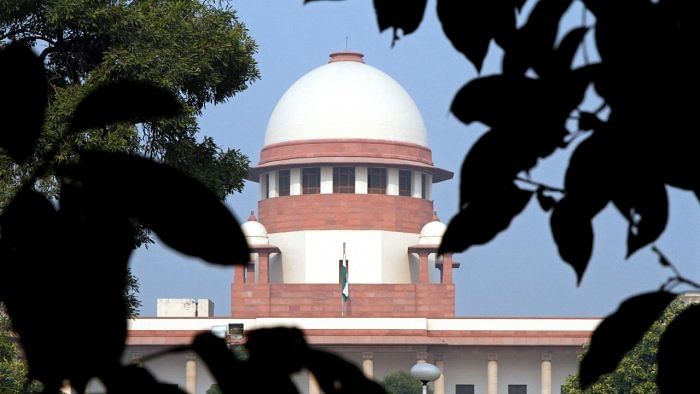
As many as 14 opposition political parties led by the Congress have filed a plea in the Supreme Court alleging misuse of the CBI and the Enforcement Directorate in a selective and targeted manner with "a view to completely crush political dissent and upend the fundamental premises of a representative democracy".
The parties sought the laying down of guidelines for governing the arrest, remand, and bail of persons in offences, not involving serious bodily harm, and excluding homicide, rape, terrorism etc.
Senior advocate Abhishek Manu Singhvi on behalf of the parties mentioned the matter before a bench led by Chief Justice of India D Y Chandrachud for urgent hearing.
The court fixed it for consideration on April 5.
The petition has been drawn and filed by advocate Shadan Farasat, and settled by senior advocate Abhishek Manu Singhvi.
The petitioners political parties are INC, DMK, RJD, BRS, Trinamool Congress, AAP, NCP, Shiv Sena (UBT), JMM, JD(U), CPI(M), CPI, Samajwadi Party, J&K National Conference).
The plea claimed all these parties, which were in power in 11 States/UTs, together represented 45.19% of the votes cast in the last State/UT Assembly Elections, and 42.5% of the votes cast in the 2019 General Elections.
The plea also cited statistics demonstrating "the shocking and unconstitutional state of affairs".
It claimed there is a clear trend of using ED raids as a tool of harassment, with the action rate on raids i.e. complaints filed pursuant to raids reducing from 93% in 2005-2014, to 29% in 2014-2022.
"So far, only 23 convictions under the Prevention of Money Laundering Act, 2002 have been secured, even as the number of cases registered by the ED under the PMLA have risen exponentially (from 209 in 2013-14 to 981 in 2020-21, and 1,180 in 2021-22)," it said.
Between 2004-14, of the 72 political leaders investigated by the CBI, 43 (under 60%) were from the Opposition of the time. Now, this has risen to over 95%, it said, contending the same pattern is reflected in ED’s investigations as well, with the proportion of Opposition leaders from the total number of politicians investigated rising from 54% (before 2014) to 95% (after 2014).
The plea sought the laying down of guidelines for arrest and remand, like the triple test (whether a person is a flight risk, or whether there is a reasonable apprehension of the tampering of evidence or of the influencing/intimidation of witnesses).
Where these conditions are not satisfied, alternatives like interrogation at fixed hours or at most house arrest be used to meet the demands of investigation, it added.
As for bail, the petitioners sought a direction that the principle of ‘bail as rule, jail as exception’ should be followed by all courts throughout, especially in cases where non-violent offences are alleged, and that bail should be denied only where the triple-test is met, it pleaded.
Where special laws such as PMLA with stringent bail conditions are concerned, the petitioners sought a direction that such bail provisions should be harmonised with Article 21 of the Constitution, it contended.
